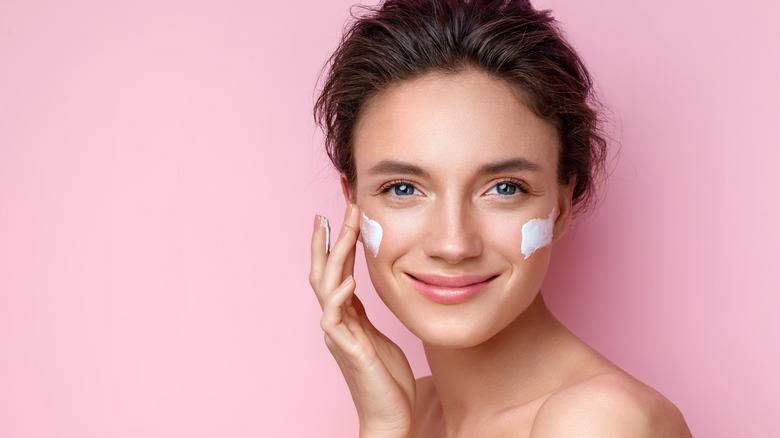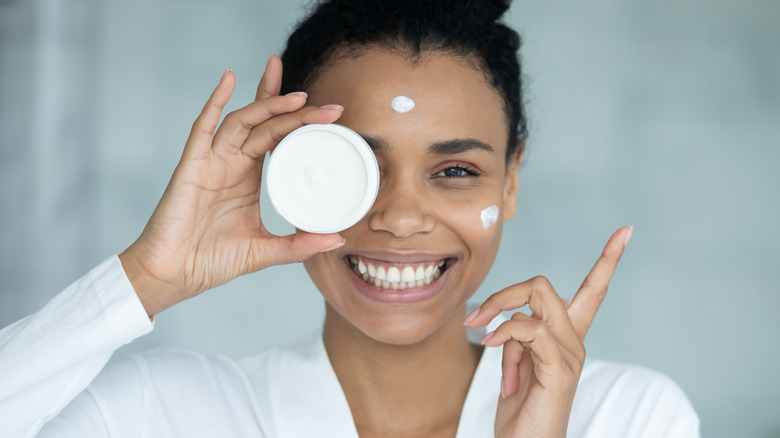Here's Why You Should Start Anti-Aging Creams Sooner Than You Think
We know more about the importance of skincare now than ever before, but let's face it — skincare can be stressful. With so many products on the market advertised toward every age group, pore issue, skin type, and glow up goal, just choosing a face wash or cream can feel downright impossible. Skincare buzzwords like "hyaluronic acid," "peptides," and "anti-aging" can make your head spin, and perhaps have you wondering, how early is too early to start using anti-aging products?
According to the American Academy of Dermatology Association (AAD), experts agree that it's never too early to begin a protective skincare routine, and board-certified dermatologist Nada Elbuluk, MD, MSc, FAAD, recommends women begin in their 20s, starting with a gentle cleanser and moisturizer with SPF 30 every morning, as well as an anti-aging cream or serum containing antioxidants. Dr. Elbuluk suggests a minimal but effective routine for those in their 20's, because, she says, "If a routine is too complicated or time-consuming, they won't stick with it." But why is anti-aging skincare important at such an early age?
Start protecting your skin as early as your 20s
Your skin, according to Newsweek, starts aging in your 20's due to factors such as pollution, lifestyle choices, and skincare habits. Visible signs of aging include fine lines and wrinkles, dryness, sensitivity, and saggy or thinning skin (via U.S. National Library of Medicine). Using anti-aging skincare products prior to visible damage is an effective way to help keep the skin healthy and supple, in other words, the sooner the better.
Y. Claire Chang, board-certified cosmetic dermatologist at Union Square Laser Dermatology in New York City, tells HuffPost, "I recommend my patients to start incorporating anti-aging skin care products in their 20s and 30s, when our skin slowly starts to lose collagen."
Perhaps the best reason of all to start protecting your skin early on is that sun damage, according to Dr. Nada Elbuluk, is cumulative. She says, "...UV exposure in your 20s could lead to wrinkles and skin cancer in your 40s and 50s," (per AAD). Board-certified dermatologist Naana Boakye of New Jersey's Bergen Dermatology agrees, telling HuffPost,"The best thing to follow a good skin regimen requires one to wear sunscreen — SPF 50 or higher — and to moisturize daily."

